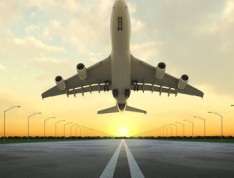Expanded Airline Passenger Protections

Expanded Airline Passenger Protections. New rules went into effect yesterday regarding passenger rights. While these are designed to protect consumers, only time will tell how these rules will work in practice. The United States Department of Transportation issued a press release yesterday which outlines many of the changes and is a good reference guide to get an overview of the protections. Borrowing liberally from the release:
Effective August, 23, 2011, airlines will be required to refund any fee for carrying a bag if the bag is lost. Airlines are already required to compensate passengers for reasonable expenses for loss, damage or delay in the carriage of passenger baggage. Under the new rules, airlines must now prominently disclose all optional fees on their websites, including but not limited to fees for baggage, meals, canceling or changing reservations, or advanced or upgraded seating.
The new rules also double the amount of money passengers are eligible to be compensated for in the event they are involuntarily bumped from an oversold flight. Previously, bumped passengers were entitled to cash compensation equal to the one-way value of their tickets, up to $400, if the airline was able to get them to their destination within a short period of time (within 1 to 2 hours of their originally scheduled arrival time for domestic flights and 1 to 4 hours for international flights). If they were delayed for a lengthy period of time (more than two hours after their originally scheduled arrival time for domestic flights and 4 hours for international flights), they were entitled to double the one-way price of their tickets, up to $800. Under the new rule, bumped passengers subject to short delays will receive compensation equal to double the one-way price of their tickets, up to $650, while those subject to longer delays would receive payments of four times the one-way value of their tickets, up to $1,300. Inflation adjustments will be made to those compensation limits every two years.
The Department of Transportation’s new rule also expands the existing ban on lengthy tarmac delays to cover the international flights of foreign airlines at U.S. airports, and establishes a hard four-hour time limit on tarmac delays for all international flights at U.S. airports. It also extends the three-hour tarmac delay limit for domestic flights, currently in place only at large-hub and medium-hub airports, to flights at small-hub and non-hub airports as well. All carriers subject to the tarmac rule will be required to report lengthy tarmac delays to DOT. In all cases, exceptions to the time limits are allowed only for safety, security or air traffic control-related reasons. Carriers must also ensure that passengers stuck on the tarmac are provided adequate food and water after two hours, as well as working lavatories and any necessary medical treatment.
Additional measures under the new rule will take effect January 24, 2012, including:
- Requiring all taxes and fees to be included in advertised fares.
- Banning post-purchase price increases.
- Allowing passengers to hold a reservation without payment, or to cancel it without penalty, for 24 hours after the reservation is made, if the reservation is made one week or more prior to a flight’s departure date.
- Requiring disclosure of baggage fees when passengers book a flight.
- Requiring that the same baggage allowances and fees apply throughout a passenger’s journey.
- Requiring disclosure of baggage fee information on e-ticket confirmations.
- Requiring prompt notification of delays of over 30 minutes, as well as cancellations and diversions.
The final rule, proposed rule and comments are available on the Internet at www.regulations.gov, docket DOT-OST-2010-0140.
If you need assistance understanding your rights or wish to file a complaint regarding your treatment from an airline, please contact The Gordon Law Firm in Oldsmar, Florida. The Gordon Law Firm serves all of Pinellas County including Clearwater and St. Petersburg, Pasco County, Tampa, and the entire Tampa Bay area.
















